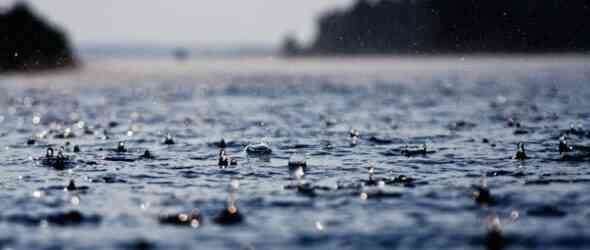What could be more familiar and mundane than rain? But many inhabitants of arid lands will not agree with this statement, in which any rain is revered as an incredible boon, because the very existence depends on it. At the same time, in other parts of our planet, it rains much more often than we would like. Too bad rain clouds can’t be directed where they’re most needed.
Interesting facts about rain
- Most often on Earth, it rains in the Colombian city of Buenaventura, which is considered the rainiest settlement on Earth.
- In Portugal, a downpour is quite an official reason not to go to work.
- Rain is nothing and doesn’t smell at all. The smell that we smell when it walks is emitted by bacteria that are activated by moisture.
- Rain clouds always form only over the seas and oceans.
- The famous Dry Valleys of Antarctica have not had rain for several million years. This is generally the driest place on Earth, from where the constant wind blew even a hint of moisture (interesting facts about Antarctica).
- The American city of Weinsburg in Ohio is notable for the fact that it rains there every July 29th. Why, no meteorologist knows.
- The game of darts was invented thanks to the rain. The archery competition was canceled due to a downpour, and out of boredom they began to throw arrows at the target with their hands right in the tavern.
- In some parts of the African country of Uganda, it rains, accompanied by thunder and lightning, on average 250 days a year (interesting facts about lightning).
- Weather forecasts first appeared when a radio station owner got caught in a rainstorm and decided that the weather forecast section would be popular.
- The heaviest downpour in Europe was recorded in 1920 in Germany. More than 1.5 cm of rain fell on the ground in a minute.
- Arab sheikhs successfully conducted an experiment to make artificial rain, but it proved too expensive to use on a regular basis. The first and only fully man-made rain fell over the emirate of Abu Dhabi.
- In the country of Botswana, the word «pula» means both «rain» and «hello». And the local currency is also called there (interesting facts about Botswana).
- In the UK, for several centuries there was a law according to which a meteorologist could be executed for an incorrect weather forecast. But in practice, it has never been used.
- In hot deserts, raindrops often do not reach the ground, evaporating in the air even during the fall.
- Acid rain can kill all life, including bacteria.
- Saturn’s moon Titan rains liquid methane, ethane and ammonia (interesting facts about the moon Titan).
- About 500,000 billion tons of water falls on Earth every year in the form of rain.
- Sulfuric acid rains on Venus, but it doesn’t reach the surface of the planet, evaporating because of the monstrously high temperature.
- About one person in a hundred thousand suffers from a rare allergy to rain. It is not the water itself that causes an allergic reaction, but the pollen and other particles contained in it.
- The rainiest country in Europe is Belgium, and its capital, Brussels, is the rainiest European city.
- The largest raindrops reach a diameter of no more than 6-7 millimeters. Larger ones always break up into a few smaller drops under the pressure of oncoming air.
- In the Chilean Atacama Desert, no more than 50 mm of precipitation falls per year. It has not rained here for more than 400 years.
- The largest raindrops are observed in the Marshall Islands.
- In the Brazilian city of Para, it always rains at the same time, and over them you can even check your watch.
- Umbrellas were invented to protect from the sun, not from rain.
